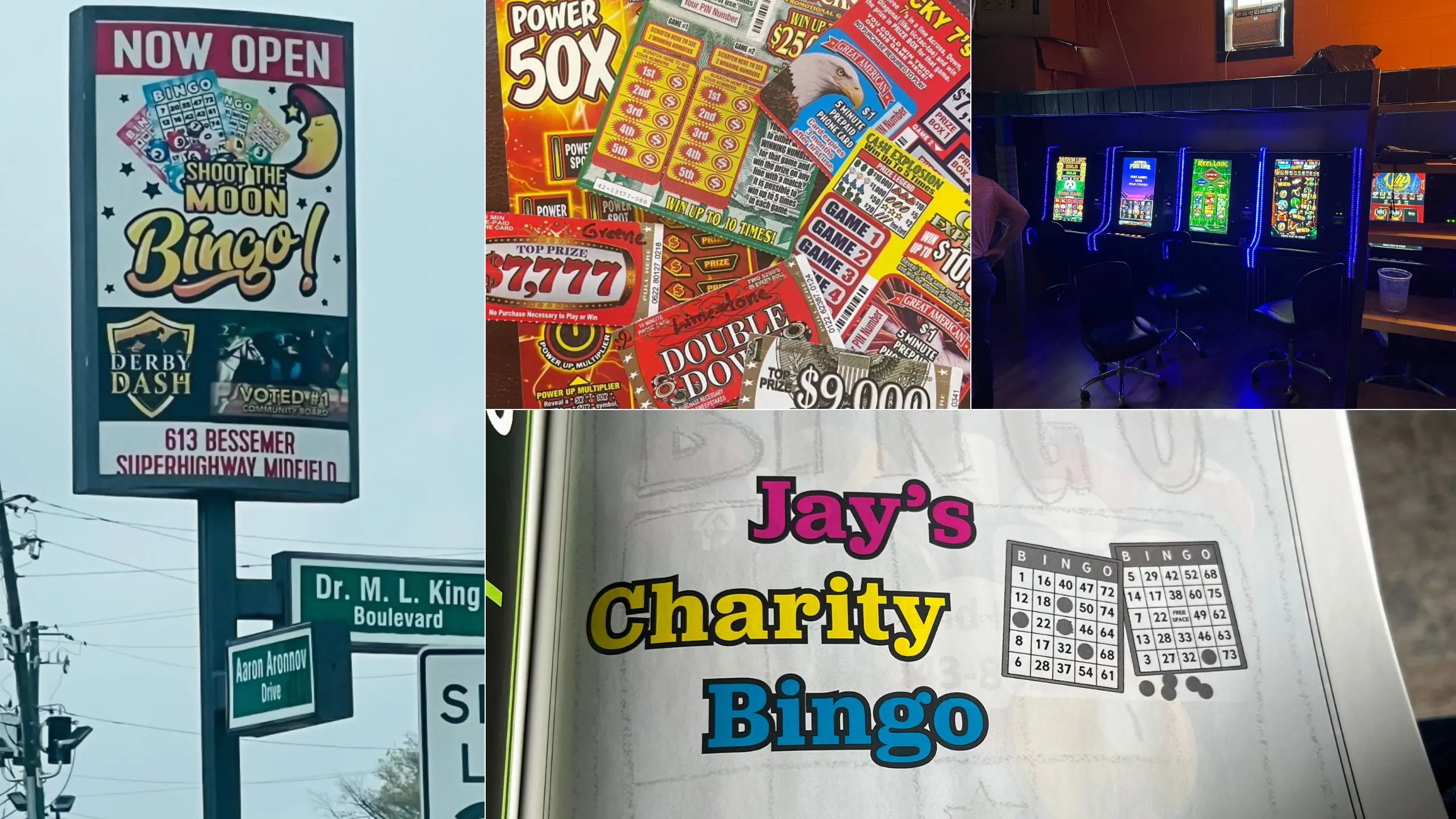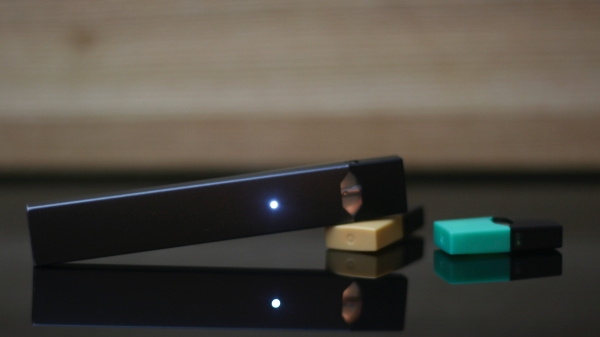|
Getting your Trinity Audio player ready...
|
The other day, searching for a way to impress upon people the prevalence of illegal gambling around Alabama and the massive, unbelievable amounts of untaxed money that gambling hauls in, I went searching through old recordings and notebooks for this story that I remember being told by the late Milton McGregor.
I considered McGregor, the former VictoryLand and Birmingham Race Course owner, to be a friend, and over the later years of his life, he and I enjoyed a number of lengthy conversations about all sorts of topics – from gambling to politics and all the sordid people and shady deals involved with both. While there were many great stories he told me, there were a couple that stood out. One of those involved a trip he made in the 2000s through north Alabama, and a stop he made along the way in Jasper.
After several days of searching, I finally found the recording in a file I’d long forgotten. But the search was worth it, because it’s the perfect illustration of just how lucrative and widespread illegal gambling is in Alabama; and it’s particularly poignant given that Senate President Pro Tem Greg Reed, the man who many lawmakers in Alabama are blaming for the current failures of comprehensive gambling legislation, represents the area in question.
APR asked Reed to comment on the allegations that he’s primarily responsible for the gambling legislation faltering and that he negotiated with his House colleagues in bad faith. APR also asked about the prevalence of illegal gambling, particularly in his district, and how it will continue unabated without legislation addressing it. Reed, nor his spokesperson, responded to numerous calls and messages. APR will update the story with any and all comments from Reed if they are provided.
The story from McGregor, though, is also important because it ties into a more recent story about gambling profits and the questionable underworld currently controlling gaming in this state – highlighting just how persistent this issue is and how it won’t change without a comprehensive plan to properly regulate and tax gambling around Alabama.
The Story
I should tell you that I’m not going to disclose the names of people involved – primarily because the people involved have no opportunity to defend themselves – but don’t worry, you don’t need names. In fact, the story might be better without them – that is, with the reality that some nameless, faceless dudes from Walker County, Alabama, who you’ve never heard of have made this much money from illegal gambling.
And it was a ton. Possibly literally.
McGregor said he was passing through the northern part of the state on his way to Tunica, Miss., for some sort of gaming-related meeting. McGregor, at the time, controlled one of the biggest dog tracks in North America at VictoryLand in Shorter and also owned the Birmingham Race Course. But dog racing was faltering, because casino gaming had moved in next door in Mississippi, and the customers had been driving right past McGregor’s dog tracks. In response, McGregor had been pushing for any sort of electronic gaming, trying first video poker and later settling on electronic bingo.
For several years, there was a mad scramble within the Alabama gambling community to figure out a way to compete with what was happening in Mississippi. Numerous pieces of legislation were passed around. The Poarch Band of Creek Indians began offering electronic bingo. Several counties passed bingo constitutional amendments, believing those would allow the operators to install the same games in their casinos.
At the same time, as the machines became popular and widespread, they began to show up in all sorts of weird places. Like gas stations and laundromats. In the back of restaurants and at clubs. And in some communities, there were not-so-secret secret gaming halls, where you paid a cover charge and could gamble away in a backwoods casino setting.
What few people ever truly considered, though, was how much money those back-of-the-gas station machines and sketchy redneck casinos hauled in. McGregor admitted he was among them. Until that day he made a stop to see an acquaintance in Jasper.
McGregor said he didn’t know the gentleman well, but that he spoke with him on occasion because they had some mutual interests in the gaming industry. The legalization of gambling machines in Alabama would, after all, impact them both, so they kept in touch and often supported the same politicians and donated to the same political action committees.
On this day, the acquaintance asked McGregor to stop at his business in the “Jasper area – somewhere in the damn backwoods where you could hear banjos playing,” McGregor said. He said it was not a fancy establishment, more along the lines of a pole barn that had been converted to offices. McGregor said he went inside and his acquaintance took him through a back door and then down into a cellar. When they entered the cellar, it was expansive.
And it was filled with metal, 50-gallon drums.
“When I got down there and looked around, whooo, big man, I got puckered up and was ready to go, because I didn’t have the slightest idea what he was about to show me, but I knew he was about to show me something,” McGregor said. “Well he goes over and flips the lid off one of those barrels. It’s filled to the top with money. Bills. Hundreds. Tens. Fives. All sorts of bills. There must have been a few hundred thousand in there. And if there was one there was 100 of these barrels. Every one of ‘em filled with money. Had to’ve been millions.”
And that was just the start of it.
There’s gold in those machines
McGregor learned a lesson that day that the entire state would soon learn – there’s a lot of money to be made from gambling in Alabama. And as the state struggled to get a hold on what is and isn’t legal gambling, especially when it comes to electronic bingo in its various forms, it started to spread rapidly.
Instead of taking an enforcement and regulation approach to managing the problem, though, former Gov. Bob Riley – for whatever reason you want to believe – took a political position. He went after the casino owners, such as McGregor, who posed political problems for him – men and women who had the means and savvy to get legislation passed that might permanently legalize the machines. In doing so, he created a gambling landscape in the state shaped not by clear laws and proper regulation, but by ambiguity, subjectivity and slap-on-the-wrist punishments that do little to deter what gaming operations state officials even bother to raid anymore.
There are billions – that’s right, billions – made in Alabama today from illegal gambling. It is so widespread that members of a gambling study group made up of state lawmakers found last year that every county in the state had illegal gambling operations. In places like Jefferson, Walker and Greene Counties, local officials are, or were at one time, actually selling gambling licenses to some establishments.
To say there might be more than a thousand operations around the state has been called a “safe estimate.” It’s so widespread, in fact, that accompanying this story is a photo mashup that includes active gambling operations from the districts of every Alabama senator who voted against the comprehensive gaming legislation passed by the House.
(The photos were included in a dense packet of information that Rep. Andy Whitt provided his colleagues prior to the start of the session. Whitt traveled the state with law enforcement visiting the various establishments and taking pictures and video. He then presented it all to his colleagues in the hopes they could get something passed).
That House legislation would have legalized 10 casino locations around the state, allowed for sports wagering (another billion-dollar industry currently being operated mostly illegally by crooks in this state) and implemented a statewide lottery. It also would have finally regulated and properly taxed gaming, meaning we’d go from a thousand gaming operations to 10 and haul in more than a billion dollars annually to boot.
Instead, because some politicians are worried more about their future political careers than about what’s best for the state or what voters in the state want (polling shows they very clearly want the chance to vote on this issue), they have opted to all but kill the very popular legislation.
And so, the state will most likely carry on like this: According to numerous law enforcement sources, the electronic bingo that we allow here is now being used by a variety of organized crime entities to wash dirty money.
We’ve come full circle – from McGregor’s acquaintance trying to hide his illegal gambling gains to backroom gambling being so acceptable and common in the state that it’s an accepted means of money laundering for traffickers.
The current washing machine
If this strikes you as hyperbole, allow me to bring your attention to a story I wrote in June 2022. That story involved a Greene County charity linked to an electronic bingo hall operating in the county. (Alabama AG Steve Marshall would tell you that they’re operating illegally, but I’ll leave that argument for another column).
Now, to be absolutely crystal clear here: I am NOT in any way stating that this casino or charity is laundering money for anyone, or even breaking laws. I am merely offering this as an example of the enormous sums of money being hauled in by gambling operators and the sketchy things that occur around these businesses.
That casino – and it is one of several small casinos currently operating in Alabama’s least populated county – in 2020 sent nearly $33 million dollars in one lump sum to a strange entity in Jasper for “management” of its electronic bingo casino. The entity was called “Starlite Solutions,” and its only record of existence in Alabama was that entry on the charity’s 990 tax forms, which listed a P.O. Box in Jasper.
The question is an obvious one: If $33 million is the management fee, how much profit did the casino earn in 2020?
And even better: How many schools could be properly funded, police stations properly staffed or roads properly maintained if we had properly taxed and regulated that casino, and all the others?
It’s probably also worth noting that at least one of those casinos in Greene County started doling out large sums of cash to various political campaigns a couple of years ago. And the money hasn’t stopped.
Now, I’m not saying those donations, or any other funds that have flowed directly or indirectly out of those casinos, might be responsible, in part, for the current impasse over the gaming bill. But I will say this: What a state we could be if our elected officials for once did what is best for us instead of what is best for them.
















































